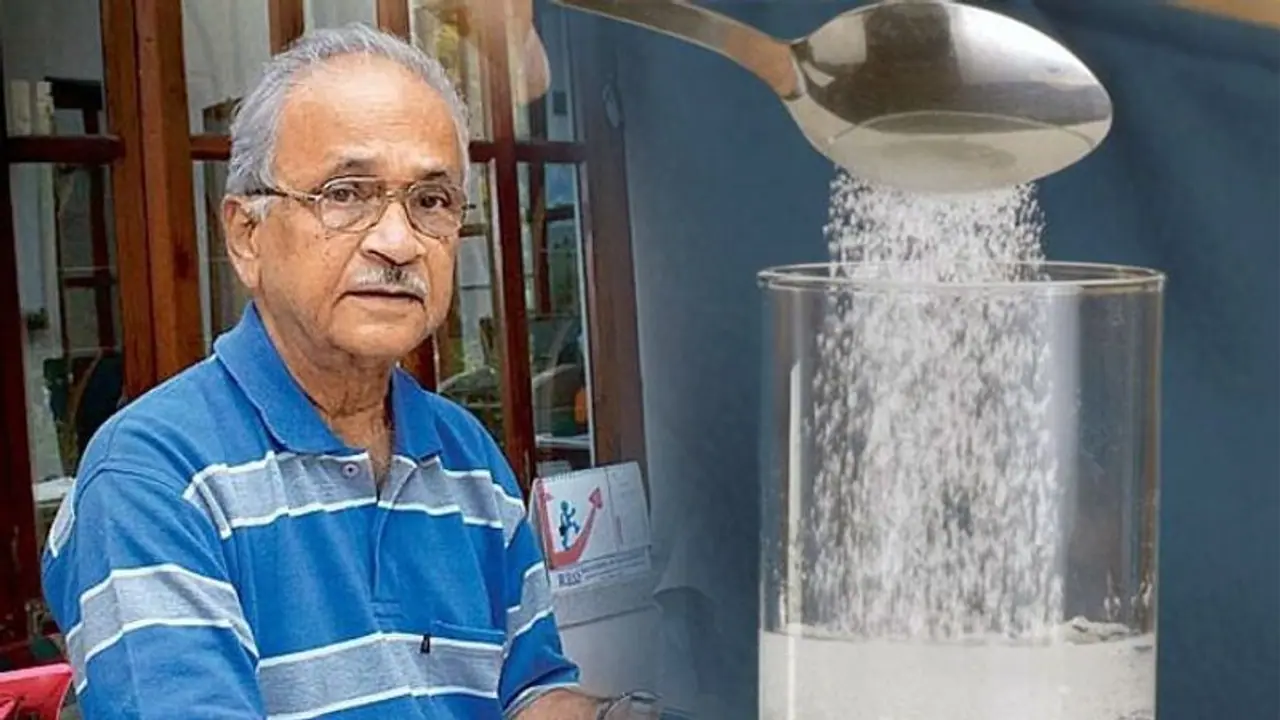According to hospital officials, Dr Mahalanabis, whose name has almost become synonymous with oral rehydration solution (ORS), had been treating age-related ailments for some time.
An eminent paediatrician, Dr Dilip Mahalanabis, who pioneered oral rehydration therapy during the 1971 Bangladesh Liberation War cholera outbreak, died late Saturday night at a private hospital in Kolkata. He was 88.

According to hospital officials, Dr Mahalanabis, whose name has almost become synonymous with oral rehydration solution (ORS), had been receiving treatment for age-related ailments.
Dr Mahalanabis was born in Kishoreganj, Bengal, in 1934 and graduated from Calcutta Medical College in 1958 before joining the hospital's paediatric department as an intern.
He was selected to study medicine in England after the British government established the National Health Service in the 1950s. Mahalanabis became the first Indian to be appointed as registrar of the Queen Elizabeth Hospital for Children in London after earning two degrees in London and Edinburgh.
Dr Mahalanabis studied cholera and other diarrhoeal diseases at the Johns Hopkins International Center for Medical Research and Training, which the American government established at Kolkata's Beliaghata Infectious Diseases Hospital.
During the Liberation War, a cholera outbreak among Bangladeshi refugees allowed the doctor to put his training to use. He went to a refugee camp in Bongaon, North 24 Parganas district, near the India-Bangladesh border.
The young doctor demonstrated that even untrained people could administer an ORS solution and deal with the crisis. His work was widely acknowledged.
Dr Mahalanabis worked for the World Health Organization (WHO) in cholera control units in Afghanistan, Egypt, and Yemen between 1975 and 1979. During the 1980s, he worked as a WHO consultant on bacterial disease management.
He recounted his 1971 experience in an interview with the WHO bulletin in 2009.
"There were many cholera deaths and horror stories. I was taken aback when I arrived. Two rooms in the Bangaon hospital were filled with critically ill cholera patients lying on the floor. To administer IV saline to these patients, you had to kneel in their faeces and vomit. Within 48 hours of arriving there, I realised we were losing the battle due to a lack of IV saline, and only two members of my team were trained to administer the fluids," he explained.
"I didn't have the luxury of consulting knowledgeable people back then. I had to make my own decision. I had no choice but to use ORS to the fullest, hoping for the best. I was confident it could work, but not under these conditions. I was also concerned that we'd be out of options if it didn't work. It was a huge relief to see that it worked," the doctor said in a WHO bulletin.
Dr Santanu Sen, former president of the Indian Medical Association, said, "This is an irreparable loss for humanity and the entire medical fraternity. A star has fallen."
Also Read: Rajeev Chandrasekhar, NBF launch 2nd phase of #BengaluruFightsCorona; distribute wellness kits
Also Read: Bengaluru street vendors pushed off the streets: To live or let live cholera-coronavirus dilemma
Also Read: Cholera: Bengaluru’s BBMP clears streets of vendors and hawkers
